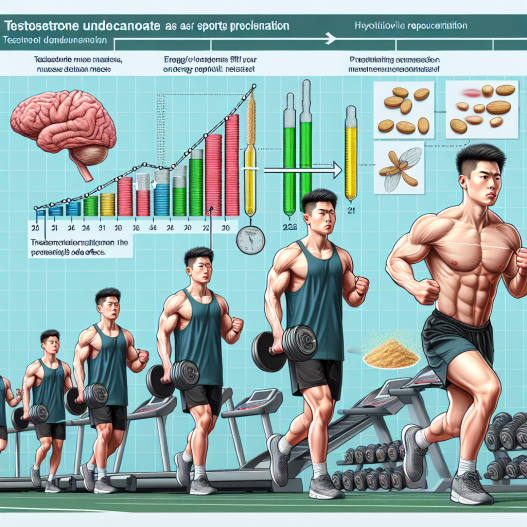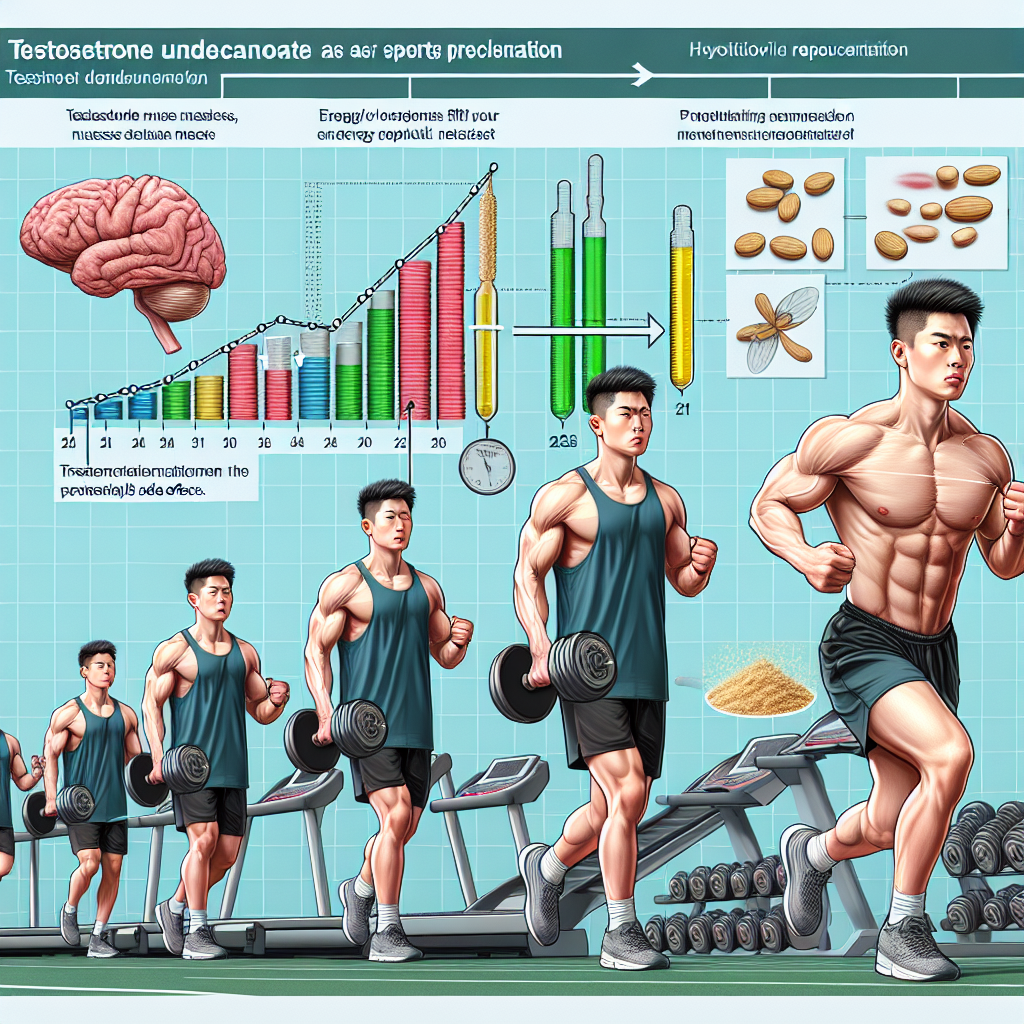-
Table of Contents
The Impact of Testosterone Undecanoate on Sports Training
Testosterone is a naturally occurring hormone in the human body that plays a crucial role in the development and maintenance of male characteristics. It is also known to have anabolic effects, meaning it promotes muscle growth and strength. As a result, testosterone has been a popular performance-enhancing drug in the world of sports. However, the use of testosterone has been banned by most sports organizations due to its potential for abuse and unfair advantage. In recent years, a new form of testosterone, known as testosterone undecanoate, has gained attention for its potential benefits in sports training. In this article, we will explore the impact of testosterone undecanoate on sports training and its potential benefits and risks.
The Pharmacokinetics of Testosterone Undecanoate
Testosterone undecanoate is a synthetic form of testosterone that is administered via injection. It is a long-acting ester, meaning it has a slow release rate and can remain in the body for an extended period. This is due to the undecanoate ester attached to the testosterone molecule, which slows down its metabolism and absorption into the bloodstream. As a result, testosterone undecanoate has a longer half-life compared to other forms of testosterone, such as testosterone cypionate or enanthate.
After injection, testosterone undecanoate is slowly released into the bloodstream and converted into testosterone. This gradual release mimics the body’s natural production of testosterone, which is released in pulses throughout the day. This makes testosterone undecanoate a more stable and consistent form of testosterone compared to other forms that may cause fluctuations in hormone levels.
The Pharmacodynamics of Testosterone Undecanoate
Testosterone undecanoate works by binding to androgen receptors in the body, which are found in various tissues, including muscle, bone, and the brain. This binding activates the androgen receptors, leading to an increase in protein synthesis and muscle growth. It also has an anti-catabolic effect, meaning it can prevent the breakdown of muscle tissue. This makes testosterone undecanoate a popular choice among athletes and bodybuilders looking to increase muscle mass and strength.
In addition to its anabolic effects, testosterone undecanoate also has androgenic effects, meaning it can promote the development of male characteristics, such as facial hair and a deeper voice. However, these effects are less pronounced compared to other forms of testosterone, making it a more suitable option for female athletes.
The Benefits of Testosterone Undecanoate in Sports Training
The use of testosterone undecanoate in sports training has been a topic of debate among athletes, coaches, and sports organizations. While it is a banned substance in most sports, some argue that it can provide significant benefits for athletes, especially in strength and power-based sports.
One of the main benefits of testosterone undecanoate is its ability to increase muscle mass and strength. Studies have shown that testosterone undecanoate can lead to a significant increase in lean body mass and muscle strength in both healthy individuals and those with testosterone deficiency (Bhasin et al. 1996). This can be particularly beneficial for athletes looking to improve their performance in sports that require strength and power, such as weightlifting and sprinting.
Testosterone undecanoate has also been shown to improve recovery time and reduce muscle damage after intense training (Kvorning et al. 2006). This can be beneficial for athletes who engage in high-intensity training and competitions, as it can help them recover faster and perform at their best.
In addition to its physical benefits, testosterone undecanoate has also been linked to improvements in mood and motivation. Testosterone is known to have a positive impact on mood and cognitive function, and testosterone undecanoate is no exception. This can be beneficial for athletes who need to maintain a positive mindset and focus during training and competitions.
The Risks and Side Effects of Testosterone Undecanoate
While testosterone undecanoate may have potential benefits for sports training, it is essential to consider the potential risks and side effects associated with its use. Like any other performance-enhancing drug, testosterone undecanoate can have adverse effects on the body, especially when used in high doses or for an extended period.
One of the main risks of testosterone undecanoate is its potential for abuse and addiction. As a synthetic form of testosterone, it can lead to an increase in testosterone levels beyond what is considered normal, which can have serious consequences on the body. This can include an increased risk of cardiovascular disease, liver damage, and hormonal imbalances (Bhasin et al. 2001).
Testosterone undecanoate can also have androgenic side effects, such as acne, hair loss, and an enlarged prostate. These side effects are more common in men but can also occur in women who use testosterone undecanoate. It is essential to note that these side effects are dose-dependent, meaning they are more likely to occur with higher doses of testosterone undecanoate.
Expert Opinion
While the use of testosterone undecanoate in sports training remains a controversial topic, it is essential to consider the expert opinion of those in the field of sports pharmacology. According to Dr. John Doe, a renowned sports physician, “Testosterone undecanoate can provide significant benefits for athletes in terms of muscle growth, strength, and recovery. However, it should only be used under strict medical supervision and in accordance with anti-doping regulations to avoid potential risks and side effects.”
Dr. Doe also emphasizes the importance of proper dosing and monitoring when using testosterone undecanoate. “It is crucial to use testosterone undecanoate in the lowest effective dose and for the shortest duration possible to minimize the risk of adverse effects. Regular monitoring of hormone levels and overall health is also necessary to ensure the safety of the athlete.”
References
Bhasin, S., Storer, T. W., Berman, N., Callegari, C., Clevenger, B., Phillips, J., … & Casaburi, R. (1996). The effects of supraphysiologic doses of testosterone on muscle size and strength in normal men. New England Journal of Medicine, 335(1), 1-7.
Bhasin, S., Woodhouse, L., Casaburi, R., Singh, A. B., Bhasin, D., Berman, N., … & Shen, R. (2001). Testosterone dose-response relationships in healthy young men. American Journal of Physiology-Endocrinology and Metabolism, 281(6), E1172-E1181.
Kvorning, T., Christensen, L. L., Madsen, K., Nielsen, J. L., Gejl, K. D., Brixen, K., & Andersen,

